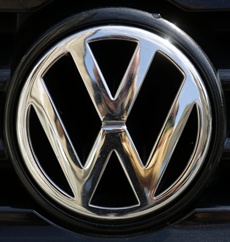Hit by 'Monkeygate', VW vows probe
30 Jan 2018
German carmakers have promised to swiftly investigate experiments that exposed people and monkeys to diesel fumes, disclosures that threaten to open a new phase in an emissions controversy that has dogged the industry since 2015
 Volkswagen chairman Hans Dieter Poetsch said on Monday diesel exhaust tests involving monkeys were "totally incomprehensible" and the matter must be "investigated fully and unconditionally".
Volkswagen chairman Hans Dieter Poetsch said on Monday diesel exhaust tests involving monkeys were "totally incomprehensible" and the matter must be "investigated fully and unconditionally".
Poetsch's comments come in the wake of a report by The New York Times, widely followed up by other media, that a research group funded by auto companies exposed monkeys to diesel exhaust from a late-model Volkswagen, while another group was exposed to fumes from an older Ford pickup.
German carmakers have promised to swiftly investigate experiments that exposed people and monkeys to diesel fumes, disclosures that threaten to open a new phase in an emissions controversy that has dogged the industry since 2015.
One of the experiments studied the health effects of emissions in the workplace. It was carried out at the University of Aachen in Germany and backed by a little-known group funded by Volkswagen AG, Daimler AG and BMW AG. Reports of the tests followed a New York Times account of similar experiments on monkeys in the US, triggering political recriminations and prompting automakers to distance themselves from the work.
''I'll do everything so that these events will be fully investigated,'' Poetsch said in an emailed statement. He said the practices were ''incomprehensible'' in every way.
The bombshell revelations mark a fresh blow to German carmakers' once-stellar reputation for engineering prowess and no-nonsense efficiency. It's also a new low since the 2015 exposure of VW's cheating on diesel emissions tests that saw 11 million vehicles equipped with software to evade regulators.
The experiments on monkeys were carried out in 2014 in New Mexico, before Volkswagen was caught using software that let vehicles cheat on vehicle emissions. They were intended to show modern diesel technology had solved the problem of excess emissions.
The report was followed by one in the Stuttgarter Zeitung that the now-closed research group also experimented on humans. The report said about 25 healthy people inhaled nitrogen dioxide in varying amounts at an institute run by Aachen University in southern Germany.
The New York Times said VW and other German car makers used the European Research Group on Environment and Health in the Transport Sector, known as EUGT, to conduct the research.
A German government official said on Monday that any auto emission testing on monkeys or people was unjustifiable.
"These tests on monkeys or even people are in no ethical way justifiable and raise many critical questions about those who are behind the tests," government spokesman Steffen Seibert said, according to the Reuters news agency.
The 2015 study on human subjects states that the "protocol" involved was approved by the "Ethics Committee of the Medical Faculty of RWTH Aachen University" and that each subject gave "informed written consent" before taking part in the trials.
The EUGT was funded entirely by VW, Daimler and BMW, but it remains unclear whether any of those manufacturers was aware of the studies using monkeys and humans.
In response to The New York Times report, VW issued a statement on Monday saying, "We believe that the scientific methods used to conduct the study were wrong and that it would have been better not to undertake it at all. The Volkswagen Group explicitly distances itself from all forms of animal cruelty. Animal testing is completely inconsistent with our corporate standards. We apologize for the inappropriate behaviour that occurred and for the poor judgment of individuals who were involved."
Daimler also issued a written statement to "expressly distance" itself from the research, saying it was "appalled by the nature and extent of the studies and their implementation" and condemning them in the "strongest terms."
"Daimler did not have influence on the study's design, we have launched a comprehensive investigation into the matter," the company said.
In an additional twist, the VW Beetle model used in the test with animals was among the vehicles rigged to cheat on emissions tests, The New York Times reported. Over the weekend, Volkswagen apologised for the misconduct and lack of judgment of some individuals, calling the trials a mistake.
BMW, while distancing itself from the studies, said the assessment of the trial at Aachen University before an independent body with appropriate expertise -- such as the ethics commission -- should be taken into account.
Daimler also promised to investigate, while saying it didn't have any influence over the study.
''We are appalled by the extent of the studies and their implementation,'' Daimler said in an emailed statement. ''We condemn the experiments in the strongest terms.''



















